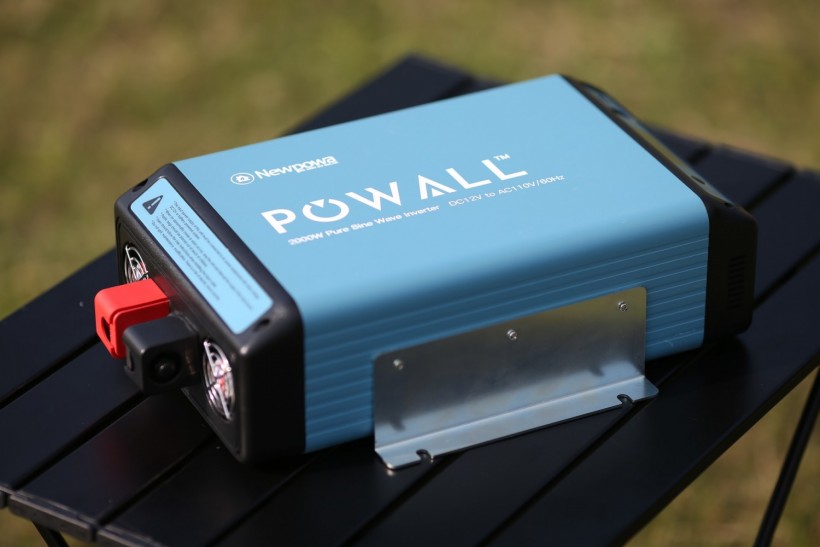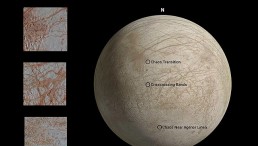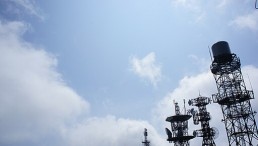Electronic devices that convert DC power into AC power are called inverters. There are two types of inverters, low frequency and high frequency inverters. Inverters are used in solar power systems, wind turbines, and electric vehicles. In this article, we will examine the differences between low frequency or high frequency inverter. Both inverters have unique features and advantages and disadvantages, which you can find below.
What are low frequency inverters?
These transformer-based inverters are mainly utilized in solar power systems and backup power systems. With a low frequency output, usually 50Hz or 60Hz, these inverters provide the most effective option for powering more demanding appliances such as air conditioners, fridges and power tools.
Benefits of low frequency inverters
-
Can handle high inrush current at startup of motors and equipment.
-
Provide better durability due to simpler design and fewer components.
-
More efficient at converting DC power to AC power at low frequencies.
-
Cost-effective compared to high-frequency inverters.
-
Suitable for heavy-duty applications that require high torque.
Drawbacks of low frequency inverters
-
Limited output frequency range.
-
Poor quality of AC power output, which may affect the performance of sensitive electronics.
-
Large size and weight due to the use of transformers.
-
Limited range of speed control.
-
Noisy operation due to the use of transformers.
What are high frequency inverters?
An inverter that converts DC power to AC power at a high frequency, also known as a transformerless inverter, does not use a transformer. The high frequency inverter converts DC power into AC power using electronic components, such as capacitors and inductors. The high frequency output of a high frequency inverter is ideal for powering electronic devices, such as computers and televisions. High frequency inverters typically have an output of 20kHz or higher.
Benefits of high frequency inverters
-
Smaller size and weight compared to low-frequency inverters.
-
Higher efficiency due to reduced power losses.
-
Greater accuracy in output waveform due to the high frequency.
-
Lower electromagnetic interference (EMI) due to higher switching frequency.
-
Lower harmonic distortion in the output waveform.
Drawbacks of high frequency inverters
-
Higher cost due to more complex circuitry.
-
Reduced reliability due to the use of high voltage components.
-
Reduced durability due to higher operating temperatures.
-
More complicated maintenance due to the complex circuitry.
-
Higher audible noise due to the high-frequency switching.
Which inverter is right for you?
When deciding between a low frequency or high frequency inverter, it is important to consider the power requirements of the appliances and devices that you wish to power. Heavy-duty items, such as air conditioners and refrigerators, may require a low frequency inverter with high surge capacity.
For electronics like computers and televisions, then a high frequency inverter with a higher efficiency may be preferable. Furthermore, cost should also be taken into account: while low frequency inverters tend to be more expensive than their high frequency counterpart due to their larger size and heavier components, they usually have a longer lifespan and greater durability - making them potentially more cost-effective in the long run.
In addition, installation should also be taken into account; since low frequency units are larger and bulkier than their high frequency equivalents, they require more space for mounting as well as extra cooling systems.
FAQ'S
Here are some frequently asked questions about low frequency and high frequency inverters:
Q:What is the difference between low frequency and high frequency inverters?
A:Low frequency inverters use a transformer to convert DC power to AC power and have a low frequency output. High frequency inverters use electronics, such as capacitors and inductors, to convert DC power to AC power and have a high frequency output.
Q:What are the benefits of low frequency inverters?
A:Low frequency inverters have a high surge capacity, making them ideal for powering heavy-duty appliances. They also have a longer lifespan and are more durable than high frequency inverters.
Q:What are the benefits of high frequency inverters?
A:High frequency inverters are more efficient at converting DC power to AC power, which means that they waste less energy in the conversion process. They are also smaller and lighter, making them ideal for applications where space is limited or where the inverter needs to be portable.
Q:Which inverter is right for me?
A:The choice between a low frequency inverter and a high frequency inverter depends on your specific needs and requirements. If you need to power heavy-duty appliances, such as air conditioners and refrigerators, a low frequency inverter may be the best option. If you need to power electronic devices, such as computers and televisions, a high frequency inverter may be the better option.
Q:How do I install an inverter?
A: The installation process for an inverter varies depending on the type of inverter and the application. It is important to follow the manufacturer's instructions carefully and to ensure that the inverter is installed in a safe and secure manner.
Q:What is the lifespan of an inverter?
A: The lifespan of an inverter depends on several factors, including the quality of the components, the operating environment, and the level of maintenance. Low frequency inverters generally have a longer lifespan than high frequency inverters due to their more durable components.
Conclusion
In conclusion, low frequency and high frequency inverters have their unique features and benefits. Low frequency inverters are ideal for applications that require high power output and can handle heavy-duty appliances. High frequency inverters are more efficient and compact, making them suitable for powering electronic devices. When choosing an inverter, it is important to consider the power requirements, cost, and installation requirements to determine which type of inverter is best for your specific needs and requirements.
* This is a contributed article and this content does not necessarily represent the views of sciencetimes.com















